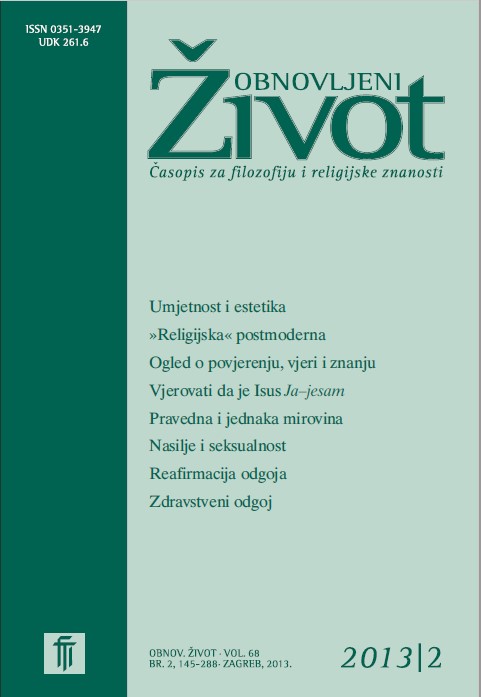An Inquiry into Trust, Faith and Knowledge
Keywords:
trust, belief, faith, knowledge, research, truth, explanationAbstract
Belief, faith and knowledge are products of the human desire to transcend oneself and are founded on trust. The directedness of trust is twofold: directedness towards a concrete concept (epistemic trust) and directedness towards something new, something higher (transcendence). Accordingly, we can speak of epistemic and transcendental belief, that is, faith and so too of knowledge. The aim of this paper is to determine whether knowledge directed towards transcendence can be called ’knowledge’ in the strict sense, just as faith in transcendence can be called ’belief’. A depiction of the relationship among the notions in question by means of a branching tree diagram serves as the basis of this analysis. Through a close examination of the diagram the author reaches the conclusion that there are three types of authority on which trust is based, and this implies that trust is also founded on knowledge of a sort, since it is needed to determine who is in authority. Knowledge is a true and substantiated belief. Truth is not an attribute of objects in the world, but a product of our reflection; on the other hand, authentication ensues from the act of distinguishing truth from falsity. Objectivity of knowledge is achieved by approaching others, not by defending one’s insights. The positivistic approach fails to grasp that in judging a higher reality, such as knowledge of transcendence, there is a constant movement towards the better which should be the end of all knowledge. However, the identification of the knowledge of transcendence with religious belief is not feasible and has been refuted.
Downloads
Published
Issue
Section
License
Jednom prihvaćeni članak obvezuje autora da ga ne smije objaviti drugdje bez dozvole uredništva, a i tada samo uz bilješku da je objavljen prvi put u Obnovljenom životu. Uredništvo će obavijestiti autora o prihvaćanju ili neprihvaćanju članka za objavljivanje.
Članci objavljeni u časopisu se, uz prikladno navođenje izvora, smiju besplatno koristiti u obrazovne i druge nekomercijalne svrhe.


